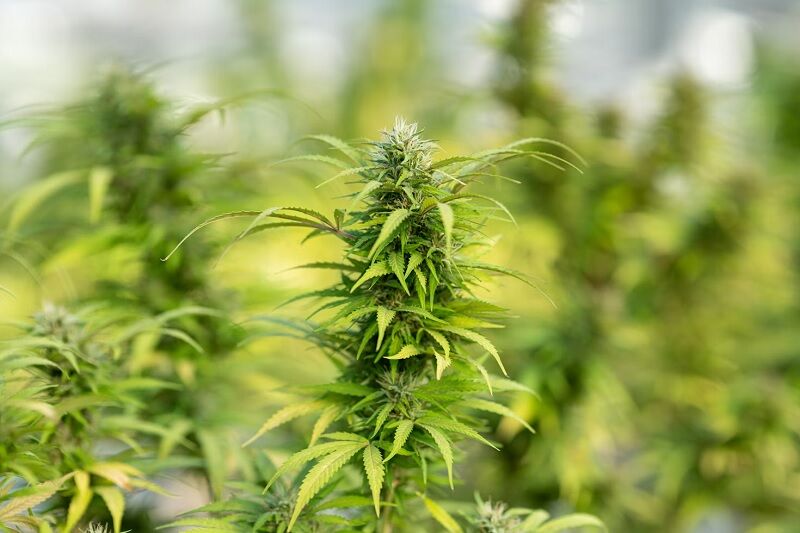A complete guide to THC

Are you ready to dive into the mind-boggling world of THC, the superstar psychoactive compound in cannabis? Join us. It’s an exhilarating and complex journey that many are eager to embark on. From its intricate chemical structure to its unpredictable effects and the riveting debates surrounding its use, it’s a Pandora’s box filled with exciting discoveries!
As we continue exploring the ever-evolving realm of cannabis, our understanding of THC also broadens, and boy, isn’t it thrilling. It’s far more than just placing it in boxes labelled indica, sativa, or hybrid. One moment, it might fill you with energy; the next thing you know, you’re calm as a cucumber. Talk about a multifaceted marvel!
And let me tell you something else: the buzz around THC is not just limited to recreational use anymore. Oh no! It has exploded onto the scenes of medicine, politics, and economics like a fireworks display on New Year’s Eve! So buckle up, folks—we’re about to take an enlightening deep-dive into this captivating world of THC. Let’s bust some myths and uncover some facts along this exhilarating journey.
Understanding THC: An overview

Navigating the labyrinth of THC – tetrahydrocannabinol, notably the primary psychoactive compound in cannabis, involves understanding its varied impacts and deciphering ongoing debates around its usage.
The chemical composition of THC
THC, the chemical that’s responsible for most of cannabis’s psychological effects, offers a lesson in chemistry. Boasting a molecular structure akin to its sister compound, CBD (Cannabidiol), THC compounds consist of 21 carbon atoms, 30 hydrogens, and two oxygen molecules (C21H30O2). Despite their molecular similarity, distinctive atomic arrangements make THC and CBD unique, exhibiting different effects on consumption.
Effects Of THC on the brain and body
Upon intake, THC interacts with cannabinoid receptors in your brain, which release dopamine, resulting in its signature ‘high’. However, these outcomes can vary from being exhilarating to calming and are largely dependent on strain-specific attributes of cannabis. Chronic usage may result in a myriad of physical and mental effects that underline the necessity for a thorough user guide. While THC is prominently known for recreational use, its significance in therapeutic applications indicates its relevance beyond leisure activities. Thus, it continues to be a hot topic in politics, medicine, and economics domains. A comprehensive understanding of THC can help deconstruct its multifaceted elements, debunk misconceptions and demystify unfounded infamy.
Assortment of THC products
Exploring the realm of THC products reveals an extensive range tailored to cater to diverse preferences and uses.
Varied modes of THC consumption
Starting with smoking, the most conventional form of consuming THC, cannabis can be enjoyed through numerous smokable items such as joints, pipes, or water devices, which offer an immediate but temporary high effect. It’s a swift method to experience the effects of THC as it enters your bloodstream instantly through your lungs.
Edible products are gaining popularity within the cannabis industry. These include food and drink items infused with cannabis, often termed ‘edibles’, offering potential longer-lasting and more intense highs compared to smoking methods. Examples encompass THC-infused brownies, gummies even coffee beverages, among others.
THC oils and tinctures are also favoured due to their potency, which provides long-lasting effects when consumed by placing drops under the tongue or mixed into food or drink.
Lastly, topical applications absorbed via the skin are becoming increasingly popular, including lotions, creams, or balms infused with THC commonly used therapeutically for pain relief or addressing inflammation issues.
Factors to consider when selecting a product containing THC

When deciding on a product containing THC, consider factors suited best for your lifestyle and requirements, such as immediacy and duration of effects; health implications—if you suffer from respiratory conditions, smoking might not be ideal; hence, other alternatives like oils, tinctures, or edibles could be considered; THC content in the product: a higher concentration can lead to more potent effects, but it’s important to remember that higher doesn’t necessarily mean better.
Remember, your personal tolerance, potential medical conditions and desired experience should be paramount. Enjoy experimenting safely with different products while being aware of how they affect you individually.
Legal and safety considerations
The legal status of THC globally
The legal stance towards THC varies globally. For instance, in countries like Thailand, cannabis use, which contains THC, is now legally approved. Nonetheless, fluctuating consensus on the legality of THC necessitates a well-informed understanding of laws specific to your locality.
Safe practices for consumption
Safe and optimum consumption of THC requires careful consideration. Understanding the composition of your chosen product is crucial, as the fat content can alter effects given how readily THC bonds with lipids. Recognising individual tolerance levels and desired outcomes underlines diversity amongst available products, ranging from smokable variants to oils and topicals. Comprehending the longevity of effects along with health considerations paves the way for safe practices when consuming THC.
Medicinal advantages Of THC

Delving deeper into the subject matter reveals that THC benefits extend beyond recreational uses,, encompassing therapeutic applications as well.
Conditions treated with THC
Rich in therapeutic properties of cannabinoids as THC potentially offers relief for numerous conditions, such as chronic pain, despite ongoing research; muscle spasticity often linked with multiple sclerosis shows considerable response to therapeutic attributes exhibited by this compound; its capacity to stimulate appetite proves beneficial during treatment processes for conditions like HIV/AIDS or certain types of cancer, providing vital nourishment and thus reinforcing recovery process; and anecdotal evidence suggests effectiveness against insomnia, among other ailments.
You’ve journeyed through the complex world of THC, unravelled its multifaceted nature, discovered an array of products containing this compound and learned how to select what’s best for you considering factors such as health, THC content and personal tolerance levels. You’re now aware of the legal landscape surrounding Nonetheless, you remain mindful of potential risks and side effects, understanding the importance of medical advice prior to usage decisions, and ensuring safety and effectiveness in your experiences with THC. Remember, your experience is personal; it’s all about finding what works best for your needs.
You can also check out, CBD vs. THC, what you need to know, When you’re shopping for weed in a dispensary in Thailand, you might have come across the abbreviations CBD and THC slapped across the product labels, usually in percentages. If you’re new to the world of cannabis, these alphabets could have you scratching your head in confusion.
Latest Thailand News
Follow The Thaiger on Google News:


























